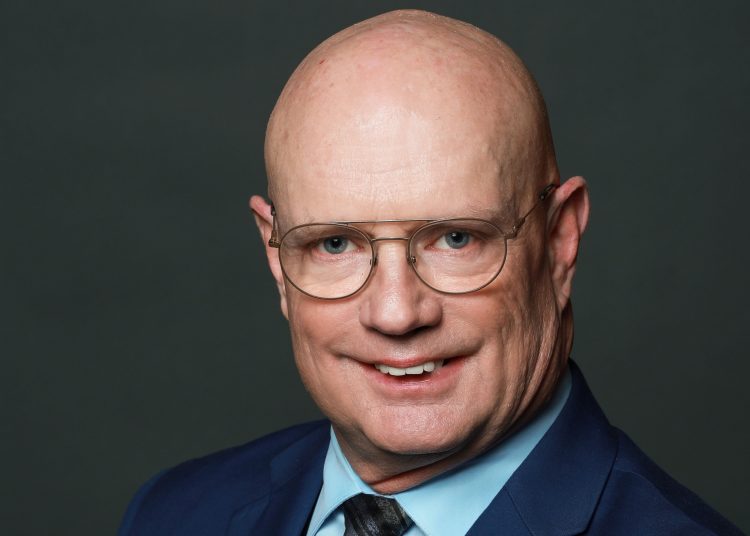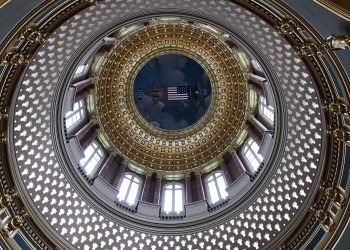Week four of the 2021 Legislative session was another busy and productive week. The Governor’s Student First Act created a great deal of conversation, even though the Student First Scholarship Program is small in scope. The House Government Oversight Committee, of which I am a member, held a second hearing on the assault on free speech on our college campuses. As Chair of House Judiciary, I have advanced a number of consequential bills, including the Life Amendment, legislation to help in the fight against human trafficking, banning microchips, and many others. In this week’s newsletter, I will highlight the Panic Defense bill.
The Governor’s Student First Act
The scope of the Student First Scholarship Program in the Governor’s bill is targeted and narrow. It is available only for children in one of Iowa’s 34 public schools identified as not meeting performance standards. The scholarships would be awarded to families to spend on a variety of approved education expenses such as tuition and textbooks.
The Department of Management calculates the cost of the Student First Scholarship program at $1.1M to $2.7M and, according to the nonpartisan Legislative Services Agency (LSA), the program’s net cost is $200,000.
The Governor’s Education bill contains a number of different sections and initiatives. Section 1 (Student First Scholarship Program) is getting all the attention, but there are many aspects of the bill that must be evaluated. House Republicans will advance the good and remove what we determine we cannot support.
The Governor’s goal in advancing this legislation is to create greater choice for parents in their children’s education so that no student is trapped in a situation that is not what is best for them. I share this priority, as do my fellow Republicans. I am in total support of greater parental choice; the question is how best to get there.
There are valid concerns about taxpayer money being diverted from public to private schools. I am concerned that once private schools receive direct funding from the state and become dependent on it, the door could be opened to government intrusion and strings attached to that funding, leaving private schools with less autonomy. I am mindful that federal dollars come with many requirements, and at times these requirements have been about advancing a political agenda not supported by many Iowans. This proposal must be carefully evaluated, and the unintended consequences must be considered.
There are other ways to support our private schools, such as greater tax incentives for giving to School Tuition Organizations (STOs). We supported STOs with good legislation in the last session and there is more that can be done. Over the next few weeks, I will engage in many discussions on the best ways to help ensure that every Iowa student has access to the quality education they deserve, whether in the public or private school setting.
I do need to set the record straight as we have this education discussion. Unfortunately, as they do anytime we discuss ways to better educate our children, Democrats say we are trying to defund public schools. This is nonsense. Republicans are responsible for record-high education investments over the last decade. K-12 education funding has increased by almost a billion new dollars over the last 10 years. Education spending accounts for over 40% of the state budget. The last time education funding was actually cut, was when Democrats had the trifecta in 2010, as the chart below demonstrates.

Discussion on greater parental choice in education is likely to intensify as a few public schools in Iowa insist on teaching highly controversial non-traditional subjects to children without first consulting their parents, leaving many to believe their values are under assault. These actions by a few schools leave many Iowans angry and ready for a discussion on how to fundamentally change how our children are being educated.
Free Speech on College Campuses
Last week, the House Government Oversight Committee heard from a student who was threatened with expulsion for disagreeing with a politically charged email sent to over a thousand recipients by the Dean of the University of Iowa College of Dentistry. This week the committee heard from representatives of each of the Regent Universities on their failure to protect the free speech rights of their students, at times taking actions that were the exact opposite of what should have taken place.
Each university apologized for the incidents and admitted their failures, but it is clear that this is happening far too often, and that decisive action must be taken to protect speech not currently in vogue on college campuses. There is a continuing pattern of free speech suppression, usually targeted at conservative students.
The university’s mission is to educate students and expose them to a universe of ideas, not place them inside an echo chamber of indoctrination to a specific ideology. When students on college campuses exercise their right to free speech, the universities appear to use different standards and rules, depending upon whether the student has a liberal or conservative philosophy. This should concern all of us, regardless of political ideology, because the pendulum almost always swings the other way eventually.
I have heard from many university students since these hearings began, including a dental student from Denison. What is described is a truly horrific atmosphere of cancel culture and intimidation by the “woke” crowd and university faculty and staff. This must stop.
Iowa House Republicans remain committed to protecting free speech on campus, regardless of political ideology, and the regent universities will return in a month to discuss the next steps they intend to take to address this issue.
I have advanced legislation to end tenure for college professors because I believe tenure is contributing to an attitude of arrogance and indestructibility that leads to these assaults on speech. I have also advanced a bill that would place political ideology as a protected class in the Iowa Civil Rights code. Elevating one group’s rights above others is problematic at best, but when students tell me that university staff says they cannot help them with free speech violations because they are not a “protected class,” it is time to act.
House Judiciary Review: Panic Defense
The Judiciary Committee remains hard at work, advancing legislation to make Iowa an even better and safer place to live. Some bills are expected, such as those addressing trusts, estates, probate, and family law. Some legislation is less expected, for example, House File 310 “A bill for an act relating to the defense of justification for certain violent crimes” otherwise known as the gay and trans panic defense bill.
When a violent crime is committed, the accused may try to justify their action in order to receive a lesser sentence. One of these defenses that has been successfully used in several states is the “gay and trans panic defense.” When asserting this defense, a person charged with a violent crime will try to justify their actions by claiming the victim’s sexuality or gender identity led to their violent actions. This defense can lead to a lesser sentence, lower charges, and even a not guilty verdict based on the victim’s sexuality or gender identity. Upon being briefed about this defense and the possible use of it in Iowa, I was repulsed by the idea that someone could take a life and get a lesser sentence by asserting this defense.
This defense became famous during the Matthew Sheppard trial. Matthew Sheppard was a gay man who was murdered in Laramie, Wyoming. He was robbed, pistol-whipped, tortured, and left to die tied to a barbwire fence. One of the defendants attempted to assert the gay and trans panic defense.
House File 310 bans this defense from being used in Iowa. The bill does not provide special protection for any group but simply ensures all victims are treated the same. Currently, 12 states ban the use of this defense and another 12 states are considering legislation on the issue. The bill passed the House Judiciary Committee unanimously, with all Republicans and Democrats in support, and is now ready for a debate on the House floor.















